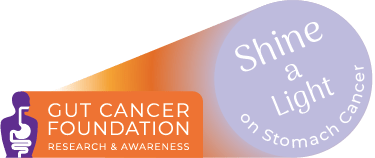New Zealand Leads the World in Gut Cancer Rates: It’s Time to Address our Ethnicity-Based Inequity Problem. By Liam Willis, Gut Cancer Foundation
Stomach cancer is a disease with highly inequitable outcomes and a disproportionate effect on Māori and Pacific communities which is measured in sobering statistics: Māori are among the few populations in the world that are more prone to diffuse-type than intestinal-type stomach cancer, partly because of the increased cancer risk due to inherited CDH1 genetic variants in the Māori population. While stomach cancer in Pākehā and Asian populations in New Zealand is declining in line with the global trend, the overall rate of occurrence among both Māori and Pacific peoples remains significantly higher (62 percent) than the population average (18 percent).
So much of the suffering and pain whānau are dealing with is preventable through awareness and action – but every month we wait for change is a month more families have to deal with avoidable loss.
The two types of adenocarcinomas – diffuse-type stomach cancer and intestinal-type stomach cancer – account for around 95 percent of all cases, and diffuse-type gastric cancer tends to be more aggressive, is less responsive to current gold standard treatments, and has higher rates of recurrence and poorer survival rates than intestinal-type cancer. In general, stomach cancer survival rates remain among the poorest for all cancers, with just 29 percent of patients living beyond five years after diagnosis.
When you look at the data, it is hard not to draw the conclusion that the New Zealand health system is letting Māori down badly by not adequately addressing the particular risk to this cohort of hereditary stomach cancer. The University of Otago’s Professor Parry Guilford, one of the leaders of a ground-breaking research team studying the CDH1 gene mutation, told NZ Doctor in 2020 that “there are likely to be several hundred Māori who are at high risk of stomach cancer because of this gene, and not all of them will be aware of that risk.”
It is therefore critically important that Māori have conversations within whānau to understand the full health history of their whakapapa and identify if they may be at risk. Crucially, the whānau of any Māori person who has been diagnosed with diffuse-type stomach cancer can access genetic testing for the CDH1 variant, regardless of any other family history.
An example many Kiwis will be familiar with is Stan Walker’s personal experience managing what he learned about his genetic risk for stomach cancer. In a personal story Stan shared on a media platform in 2018, he explained, “Our family has an aggressive CDH1 hereditary mutation, which means about an 80 per cent chance of getting stomach cancer.” Stan’s mother battled CDH1-related breast cancer, and genetic testing in his mid-teens confirmed that Stan had inherited the mutation. When Stan developed stomach cancer in his 20s, his stomach was removed entirely to save his life.
A study led by Professor Guilford alongside Dr Karyn Paringatai (for the University of Otago) and the Kimihauora Health and Research Clinic (Tamapahore Marae, Pāpāmoa)) amongst others, highlighted the issue of hereditary risk and includes a specific genetic testing criteria for Māori, a significant step that emphasises the extent of inequity and risk, given it is uncommon in international guidelines to single out sub-populations).
As with other gut and GI cancers, there is more than one causative factor at play. The good news is that this means that there is considerable scope to improve outcomes for people with stomach cancer based on a better understanding of the somewhat unique epidemiology that occurs here.
The Gut Cancer Foundation is calling for urgent support for more New Zealand-specific research to identify the other elements, risks, and factors that are causing such a high incidence of diffuse-type stomach cancer in New Zealand.
We need to back world-leading researchers to make further breakthroughs so we can address the inequities associated with stomach cancers and vastly reduce their occurrence, in part by introducing or strengthening targeted public awareness and education that will better protect at-risk whānau and increase the general awareness of stomach cancer risk among Kiwis.
The global trend is going in the right direction – now we need to ensure that these good outcomes are experienced proportionately by us all.
